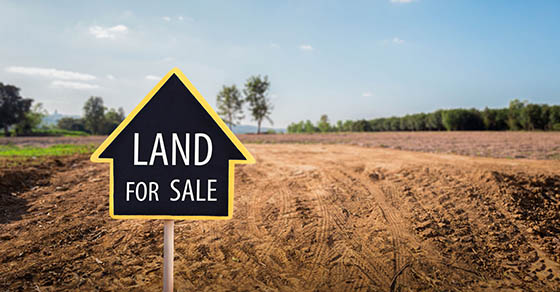Let’s say you own highly appreciated land that’s now ripe for development. If you subdivide it, develop the resulting parcels and sell them off for a hefty profit, it could trigger a large tax bill.
In this scenario, the tax rules generally treat you as a real estate dealer. That means your entire profit — including the portion from pre-development appreciation in the value of the land — will be treated as high-taxed ordinary income subject to a federal rate of up to 37%. You may also owe the 3.8% net investment income tax (NIIT) for a combined federal rate of up to 40.8%. And you may owe state income tax too.
It would be better if you could arrange to pay lower long-term capital gain (LTCG) tax rates on at least part of the profit. The current maximum federal income tax rate on LTCGs is 20% or 23.8% if you owe the NIIT.
Potential tax-saving solution
Thankfully, there’s a strategy that allows favorable LTCG tax treatment for all pre-development appreciation in the land value. You must have held the land for more than one year for investment (as opposed to holding it as a real estate dealer).
The portion of your profit attributable to subsequent subdividing, development and marketing activities will still be considered high-taxed ordinary income, because you’ll be considered a real estate dealer for that part of the process.
But if you can manage to pay a 20% or 23.8% federal income tax rate on a big chunk of your profit (the pre-development appreciation part), that’s something to celebrate.
Three-step strategy
Here’s the three-step strategy that could result in paying a smaller tax bill on your real estate development profits.
1. Establish an S corporation
If you individually own the appreciated land, you can establish an S corporation owned solely by you to function as the developer. If you own the land via a partnership, or via an LLC treated as a partnership for federal tax purposes, you and the other partners (LLC members) can form the S corp and receive corporate stock in proportion to your percentage partnership (LLC) interests.
2. Sell the land to the S corp
Sell the appreciated land to the S corp for a price equal to the land’s pre-development fair market value. If necessary, you can arrange a sale that involves only a little cash and a big installment note the S corp owes you. The business will pay off the note with cash generated by selling off parcels after development. The sale to the S corp will trigger a LTCG eligible for the 20% or 23.8% rate as long as you held the land for investment and owned it for over one year.
3. Develop the property and sell it off
The S corp will subdivide and develop the property, market it and sell it off. The profit from these activities will be higher-taxed ordinary income passed through to you as an S corp shareholder. If the profit is big, you’ll probably pay the maximum 37% federal rate (or 40.8% percent with the NIIT. However, the average tax rate on your total profit will be much lower, because a big part will be lower-taxed LTCG from pre-development appreciation.
Favorable treatment
Thanks to the tax treatment created by this S corp developer strategy, you can lock in favorable treatment for the land’s pre-development appreciation. That’s a huge tax-saving advantage if the land has gone up in value. Consult with us if you have questions or want more information.
© 2023





